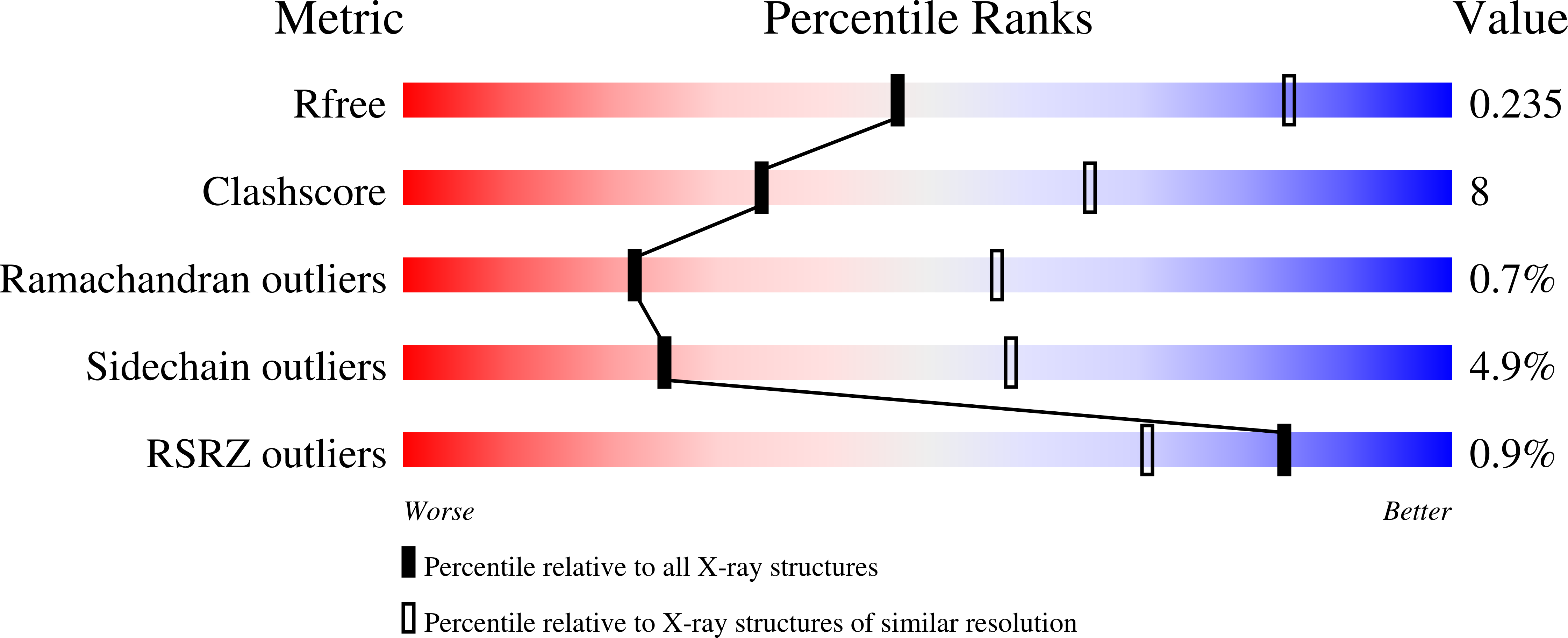
Deposition Date
2021-03-23
Release Date
2021-05-05
Last Version Date
2024-01-31
Entry Detail
PDB ID:
7NZ7
Keywords:
Title:
Crystal structure of mouse ADAT2/ADAT3 tRNA deamination complex 1
Biological Source:
Source Organism(s):
Mus musculus (Taxon ID: 10090)
Expression System(s):
Method Details:
Experimental Method:
Resolution:
2.96 Å
R-Value Free:
0.23
R-Value Work:
0.19
R-Value Observed:
0.19
Space Group:
P 32 2 1


